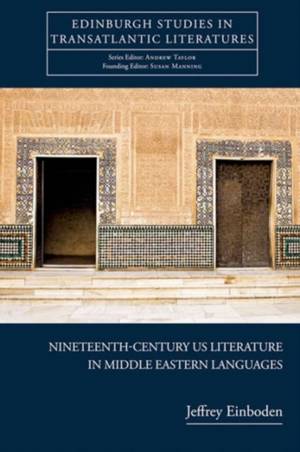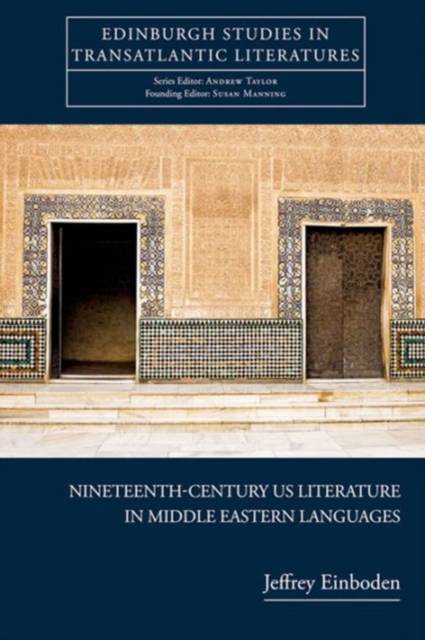
- Retrait gratuit dans votre magasin Club
- 7.000.000 titres dans notre catalogue
- Payer en toute sécurité
- Toujours un magasin près de chez vous
- Retrait gratuit dans votre magasin Club
- 7.000.000 titres dans notre catalogue
- Payer en toute sécurité
- Toujours un magasin près de chez vous
Nineteenth-Century U.S. Literature in Middle Eastern Languages
Jeffrey EinbodenDescription
A transnational study of the American Renaissance which explores the literary circulation of Middle Eastern translations of 19th-century U.S. literature
In a pioneering approach to classic U.S. Literature, Jeffrey Einboden traces the global afterlives of literary icons from Washington Irving to Walt Whitman and analyses 19th-century American authors as they now appear in Arabic, Hebrew and Persian translation. Crossing linguistic, cultural and national boundaries, Middle Eastern renditions of U.S. texts are interrogated as critical readings and illuminating revisions of their American sources. Why does Moby-Dick both invite and resist Arabic translation? What are the religious and aesthetic implications of re-writing Leaves of Grass in Hebrew? How does rendering The Scarlet Letter into Persian transform Hawthorne's infamous symbol? Uncovering the choices and changes made by prominent Middle Eastern translators, this study is the first to reveal the significance of 'orienting' American classics, demonstrating how such a process offers a valuable lens for reconsidering U.S. literary origins, accenting and amplifying facets of the American Renaissance customarily hidden.
Key Features:
Advances Transatlantic Studies through expanding the field's critical perspective and methods, revealing the Middle East as a significant region for American literary receptions, and translation as an instructive lens for re-evaluating U.S. classicsProvides vital transnational readings of Washington Irving, Henry Wadsworth Longfellow, Nathaniel Hawthorne, Herman Melville and Walt Whitman previously unacknowledged in American Studies Develops and promotes a theory of global literary circulation, situating the American Renaissance as a pivotal movement, reaching back to ancient Middle Eastern sources, and forward to developing Middle Eastern transmissions
Spécifications
Parties prenantes
- Auteur(s) :
- Editeur:
Contenu
- Nombre de pages :
- 256
- Langue:
- Anglais
- Collection :
Caractéristiques
- EAN:
- 9780748645640
- Date de parution :
- 20-05-13
- Format:
- Livre relié
- Format numérique:
- Genaaid
- Dimensions :
- 155 mm x 236 mm
- Poids :
- 566 g







